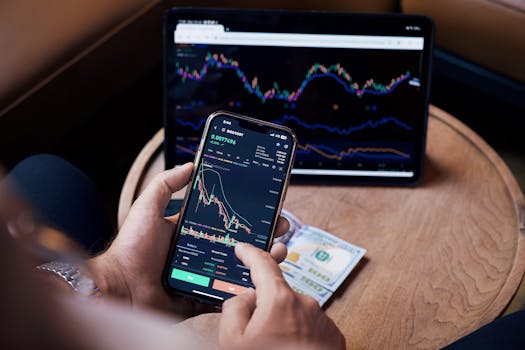Apps
When to Uninstall Apps: Signs They're Piling Up on Your Phone
Discover the signs that indicate the need to uninstall apps from your phone. Keep your smartphone optimized and secure with this practical guide.
Advertisement
With the rise of smartphones, the number of apps available for download has grown exponentially. While many of them are extremely useful, some may become unnecessary over time. It's important to know when to delete an app from your phone.
With limited storage space on most devices, keeping apps you no longer use can be a huge waste. Furthermore, accumulating unnecessary apps can impact your smartphone's performance. This article will help you identify clear signs that an app has outlived its usefulness.
We'll cover several aspects that indicate the need to uninstall an app. By the end, you'll have a better understanding of the signs that indicate the right time to act.
Signs That an App Is No Longer Useful
The first sign that an app is no longer useful is its frequency of use. If an app hasn't been opened in several weeks, it might be time to consider deleting it.
Additionally, the app's usefulness may have changed. An app that was essential at one stage of your life may no longer be relevant. Evaluate the apps on your home screen at least once a month.
Another factor to consider is the number of new apps emerging. Sometimes, a new app can perform similar functions more efficiently. Research alternatives before deciding to stick with your old one.
Also consider app updates. If an app hasn't received updates in a long time, it may be outdated and have security flaws. This is a concern, especially for apps that handle personal data.
Finally, check the app store's ratings and reviews. If many users point out issues or drawbacks, your decision to delete the app may be justified.
Your Device's Performance
One of the most important aspects when considering whether to keep an app is how it affects your device's performance. Resource-intensive apps can slow down your phone.
If you notice your phone freezing frequently, it could be a sign that an app is causing problems. Identify if there's an app that needs to be removed.
Additionally, run a speed test. If browsing and overall performance are compromised, uninstalling apps that are consuming memory may be a good solution.
Also check your battery usage. Some apps are known to drain battery quickly. If an app is one of the biggest power consumers, consider uninstalling it.
Finally, monitor your mobile data usage. Apps that use a lot of your data allowance can be an unnecessary burden. Consider whether it's worth keeping these apps on your phone.
Storage Space
Lack of storage space is a reality for many smartphone users. When available space on your device starts to dwindle, you need to make an informed decision.
Analyze your installed apps and determine which ones really need to be there. Sometimes, a gaming app can take up dozens of megabytes without being used.
Remember that many apps offer the same functionality. If you have two or more apps with the same purpose, choose one and uninstall the others.
Another important point is to listen to your phone when it alerts you about low space. These messages are a clear signal that you need to take action. So don't ignore them.
When evaluating storage space, clean up regularly. Remove apps you don't use, even if they're saved "just in case."
Updates and Support
A lack of app updates is a factor that shouldn't be ignored. An app that isn't updated can present security flaws and functionality issues.
Consider when the app provider last made improvements. If it's been more than six months, it might be time to find a more up-to-date alternative.
Security is another concern when it comes to outdated apps. Outdated apps can be vulnerable to attacks, potentially compromising your personal information.
Additionally, some apps may no longer be officially supported. This means that if you encounter issues, there won't be any help available. Consider whether it's worth sticking with them.
Keeping apps up to date ensures you have the most secure and functional features. Therefore, remove any that don't meet this criteria.
Interaction with Other Apps
Interaction between apps is another important issue. If an app doesn't integrate well with others you use, it can end up being a source of frustration.
If you're using an app that doesn't connect to social networks or other services, its functionality may be limited. This could indicate it's time to delete it.
Additionally, apps that request too many permissions without clear justification should be evaluated. If they don't add value, security and privacy may be compromised.
Also consider how interacting with other apps can improve your overall experience. If an app doesn't contribute in this regard, it may be worth removing.
Finally, consider how a standalone app can affect your mobile efficiency. Keep only the relevant ones.
Other Users' Opinions
Other users' opinions and experiences can be valuable when choosing which apps to keep. Negative reviews shouldn't be ignored.
Search the app stores for reviews that mention performance or functionality issues. This could be a sign that the app isn't worth it.
Whenever possible, read detailed reviews that consider the pros and cons. A more in-depth analysis can help you make an informed decision.
If an app frequently receives negative feedback, it may be best to look for alternatives that are receiving positive reviews. User experience often says a lot about an app.
Remember that choosing an app should be based on its usefulness and performance, as well as other people's opinions. This is essential for optimizing your phone.
Conclusion
Deleting an app from your phone can be a daunting task, especially if you used it frequently. However, recognizing the signs that it's no longer useful is crucial.
Consider usage frequency, device performance, and available storage space. Also consider updates and other users' opinions.
With this clear information, you'll be able to make more informed decisions about which apps to keep on your phone and which to remove. This will result in a faster, more efficient device.
Finally, remember that keeping only relevant apps is not only a matter of organization, but also of security and efficiency. Reflect on this regularly.
| Signal | Description |
|---|---|
| Lack of use | App not used for weeks or months. |
| Scarce updates | App that is not updated regularly. |
| Impact on performance | Cell phone slow or crashing frequently. |
| Occupying space | App that consumes a lot of space and is not useful. |
| Negative feedback | Bad reviews and complaints from other users. |
- Check how often you use the apps.
- Evaluate the updates made available.
- Identify apps that compromise performance.
- Check the amount of space occupied.
- Analyze other users' opinions and comments.




